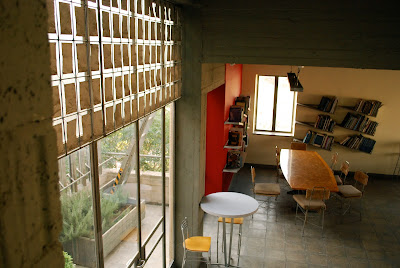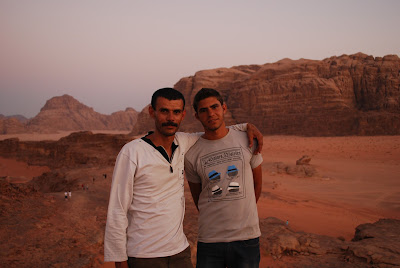Don't get me wrong when I say I'm not a radical feminist. I'm proud of and thankful for Anthony, Wollstonecraft, de Gouges, and the suffragettes. I'm a woman and I strongly believe in global women's rights and equality. Still, I'm no extremist.
But here in Jordan, the little feminist in me is having a hard time. It's the small things that get me; the split second moments and decisions that speak volumes about an underlying worldview. I respect the religious context. I've had the reasoning explained to me plenty of times. I understand that culture dictates women submit to men's "protection", but it's still a shock sometimes when I see it first hand.
Durring our orientation, one of the women was giving a fascinating lecture on cultural norms. From dress-codes to taxi etiquette, it was information we needed to know and she was finally clarifying old questions. Suddenly one of the men thought of something he wanted to add, completely cut her off, and finished the lecture. When she saw him darting over, she instantly gave him the floor and apologized multiple times. Apologized for what? What he was saying was nowhere as interesting or relevant, and, while of course I didn't say anything, inside I wanted to tell him how rude and unnecessary his interruption was.
There are rules that apply to us as well. For example, women are not allowed to sit in the front seat of a taxi. Even if there are three of you, you have to squeeze in the back seat, groceries, bags and all. So many times, I'll lean into the front window to see if the driver knows where we're going, upon confirmation open the front passenger door to get in, but then remember that's taboo. So no, we're all sardines in the back seat. Even if you're the only passenger! If you're a woman, you're in the back. I don't like it.
On top of it, men will hiss at you here. It's this quick little "pssss, psss"; the kind of sound you'd make if you're calling a kitten. It's incredibly derogatory and creeps me out. I am not an object. Do not hiss at me. But you cannot make eye contact; you just keep your eyes down and walk past. Ignore it, brush it off...keep going.
Hmm, looking over the post, I didn't plan on this turning into a rant. Jordan is amazing and I love being here. It's fascinating being immersed in a culture so very different from our own. The food is amazing, the classes are challenging, working in the clinics is so incredible and eye-opening....it's just that, in the subtle, daily, inter-gender exchanges, it's a bit of culture shock. You hear about women's rights (or lack thereof) in different countries, you read about submission and compliance, but until you see it, feel it, it tends to remain abstract in your mind. Coming from a western way of thinking, I find myself wanting to protest, but it's not my culture. Not my language. Not my place.



































